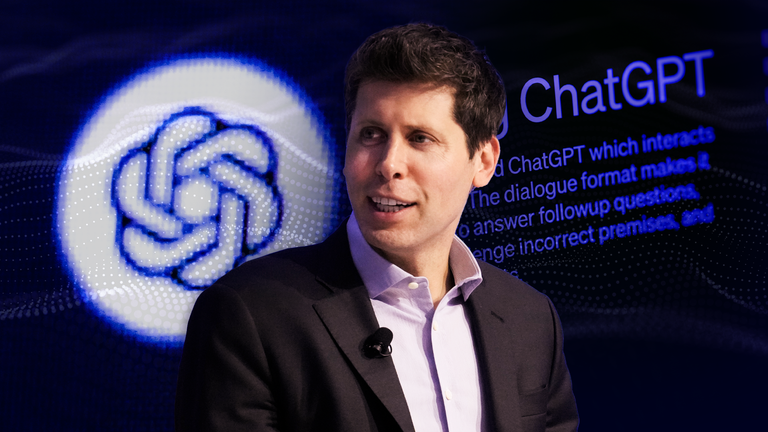
Scarlett Johansson has said she was “shocked” and “angered” after OpenAI allegedly recreated her voice without her consent for a new ChatGPT system.
The actress released a statement where she personally criticised the company’s CEO Sam Altman for insinuating she was the voice named ‘Sky’ by posting the word ‘her’ on X, a reference to a film where she voiced an AI which a human fell in love with.
“Last September, I received an offer from Sam Altman, who wanted to hire me to voice the current ChatGPT 4.0 system,” the 39-year-old Oscar nominee said.
“He told me that he felt that by my voicing the system, I could bridge the gap between tech companies and creatives and help consumers to feel comfortable with the seismic shift concerning humans and AI. He said he felt that my voice would be comforting to people.”
She went on to say that eventually for personal reasons she declined his offer then, nine months later, her attention was drawn to how much the “Sky” voice sounded like her.
“When I heard the released demo, I was shocked, angered and in disbelief that Mr Altman would pursue a voice that sounded so eerily similar to mine that my closest friends and news outlets could not tell the difference,” Johansson said.
“Mr Altman even insinuated that the similarity was intentional, tweeting a single word “her” – a reference to the film in which I voiced a chat system, Samantha, who forms an intimate relationship with a human.
“Two days before the ChatGPT 4.0 demo was released, Mr Altman contacted my agent, asking me to reconsider. Before we could connect, the system was out there.
“As a result of their actions, I was forced to hire legal counsel, who wrote two letters to Mr Altman and OpenAI, setting out what they had done and asking them to detail the exact process by which they created the ‘Sky’ voice. Consequently, OpenAI reluctantly agreed to take down the ‘Sky’ voice.”
“In a time when we are all grappling with deepfakes and the protection of our own likeness, our own work, our own identities, I believe these are questions that deserve absolute clarity. I look forward to resolution in the form of transparency and the passage of appropriate legislation to help ensure that individual rights are protected.”
On Monday OpenAI released a statement saying it would “pause” the use of a ChatGPT voice after users noticed it sounded like the actress.
OpenAI said: “We’ve heard questions about how we chose the voices in ChatGPT, especially Sky.
“We are working to pause the use of Sky while we address them.”
Read more:
How the chaos at OpenAI has unfolded
Snapchat flagged in nearly half of child abuse imagery crimes in past year
The artificial intelligence (AI) company offers five voices that can speak generated answers through its ChatGPT service.
OpenAI earlier denied it intentionally copied Johansson and said it believed “AI voices should not deliberately mimic a celebrity’s distinctive voice”.
The New York Times sued OpenAI at the end of last year over allegations it, and its biggest investor Microsoft, unlawfully used the newspaper’s articles to train and create ChatGPT.
The suit alleges that the AI text model now competes with the newspaper as a source of reliable information and threatens the ability of the organisation to provide such a service.












